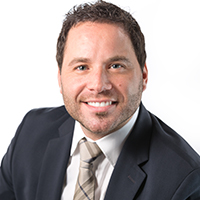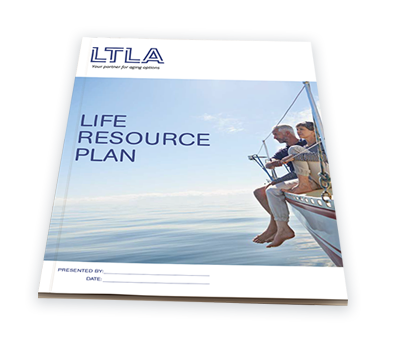
FAQs
Do I have to sign my home over to the bank, or will the bank get my home when I pass on?
Those are the two most common misconceptions. In fact, you keep ownership of your home, and your heirs will inherit the home when you pass on. A reverse mortgage is just a special type of home equity loan, which lets you access some of your home’s value now, without ever having to make a monthly payment. You keep title to your home, and can sell it whenever you want. If you stay in your home until the end, the reverse mortgage will become due when you pass on, but your heirs will own the home. They will have the option of keeping it (after paying off the loan) or selling the home and taking the remaining equity as their inheritance.
If I take a reverse mortgage, will any of my benefits be reduced?
Since the proceeds from a reverse mortgage are not income, benefits such as Social Security, Medicare, PAAD, etc. will not be affected. The money is also tax-free. Only an asset-based benefit, such as Medicaid, will need to be coordinated, to ensure that the senior’s bank account doesn’t exceed the maximum allowed.
Is a reverse mortgage only appropriate for desperate seniors?
Some seniors do a reverse mortgage in order to get money to keep them from losing their homes, but most use it as a financial planning tool. After a lifetime of using their income to increase home equity, a reverse mortgage allows them to convert some of that equity into a tax-free income supplement. It can be used to pay off an existing mortgage, credit card debt or medical bills, home repairs and improvements, gifts to loved ones, travel, or just to improve their quality of life.
Reverse mortgages seem to have a bad reputation. Is it a scam, or too good to be true?
There were some abuses in the industry during the early days of the program. But in 1989, President Reagan put the federal government in charge of reverse mortgages. The Federal Housing Authority (FHA) now not only regulates, but also insures reverse mortgages, so neither you nor your heirs can ever owe more than the home is worth. This is the ultimate safety net for both the senior and their family. It’s also not “too good to be true,” because it’s not free money. A reverse mortgage is a home equity loan, and the lender will make money by adding interest onto the loan balance each year. There’s no monthly payment; they get paid when the home is sold.
If I'm interested, what's the best way to choose a reverse mortgage lender?
None of the big banks offer reverse mortgages any more. Your choice is between a mortgage broker and a direct lender. With a direct lender, there’s no middleman, and you know who’s going to service your loan (no talking to offshore representatives!). But even with a direct lender, it’s important to determine how experienced they are specifically with reverse mortgages. There are also lenders who are experienced, but are out-of-state, and will only deal with you over the phone and through the mail. A local, experienced reverse mortgage direct lender who will work with you at your kitchen table is recommended.
I read a few years ago that reverse mortgages are expensive. Is that still the case?
Not anymore. Fortunately, FHA recently reduced their mortgage insurance premium by 75%, for most seniors. This is usually the highest of the transaction fees, so reverse mortgages are now much less expensive than they used to be. Lenders are also now more willing to lower their loan origination fees, which most seniors don’t realize is negotiable.
If I do a reverse mortgage, won’t I be reducing my children’s inheritance?
Yes, and this is the main downside of the program. However, if your children will survive on inheriting most, instead of all of your home’s value, you will be able to live a better quality of life now and in the future. Also, new FHA rules limit how much equity you can take out of your home, so the chance that a reverse mortgage could eventually eat up all of your home’s value is very small these days.
Can I get a reverse mortgage if I currently have a traditional mortgage or home equity loan?
Yes, as long as there is sufficient equity in the home. All lenders must use FHA’s formula, which calculates the reverse mortgage lending limit. It’s based on the value of the home and the age of the youngest homeowner. As long as the proceeds from the reverse mortgage are sufficient to pay off all current home loans, the senior will be eligible for approval. There’s also sometimes a misconception that the homeowner must have a current mortgage to “reverse.” This program is definitely available to seniors who own their home outright. The FHA lending limit is calculated the same way.
Exactly how am I able to get the reverse mortgage funds?
First, any liens (current mortgage, home equity loan, etc.) are automatically paid from the reverse mortgage proceeds. Then, the homeowner can take the remaining funds in any combination of up-front money, monthly checks, and/or line of credit. Taking cash immediately is often used to pay off credit cards and any other outstanding bills. Monthly checks (the amount is decided by the homeowner, and can be adjusted at any time) are usually used to make up the difference between a senior’s income and their expenses. Whatever isn’t taken up-front or earmarked for the monthly checks is automatically in a line of credit for you. The line of credit doesn’t cost you anything (the bank doesn’t charge interest on it, and in fact, it grows every month), and is typically used for future expenses such as a new roof, car, travel, etc. Once you’re approved by both the lender and FHA, you don’t have to reapply to access that line of credit, and you don’t have to justify what you’re going to use the money for.
What if my spouse is under the age of 62?
One of the best recent changes that FHA has made to the program is to allow “underage” spouses to remain on the deed to the home. The reverse mortgage will only be in the name of the older spouse, but if that person passes on, the loan does not become due yet. This rule change eliminates the situation behind the negative stories that have appeared in several publications over the years. The younger spouse is now able to remain in the home for life, and the reverse mortgage does not become due, as long as the home remains the primary residence of the spouse, and the property taxes and homeowner’s insurance continue to be paid.

Dispelling Myths that Give the Reverse Mortgage a Bad Name
Gaining a better understanding of what a reverse mortgage is and how it works is an important first step in helping seniors evaluate whether a reverse mortgage will be a useful financial tool. Rick Schluter dispels the myths surrounding reverse mortgages and discusses how this tax-free financial vehicle allows individuals 62 years and older use some of the equity in their homes to help them stay put and experience quality of life.
Life Resource Plan
What is the best course of action for you and your loved one? Find out by talking to a consultant and creating a Life Resource Plan.



